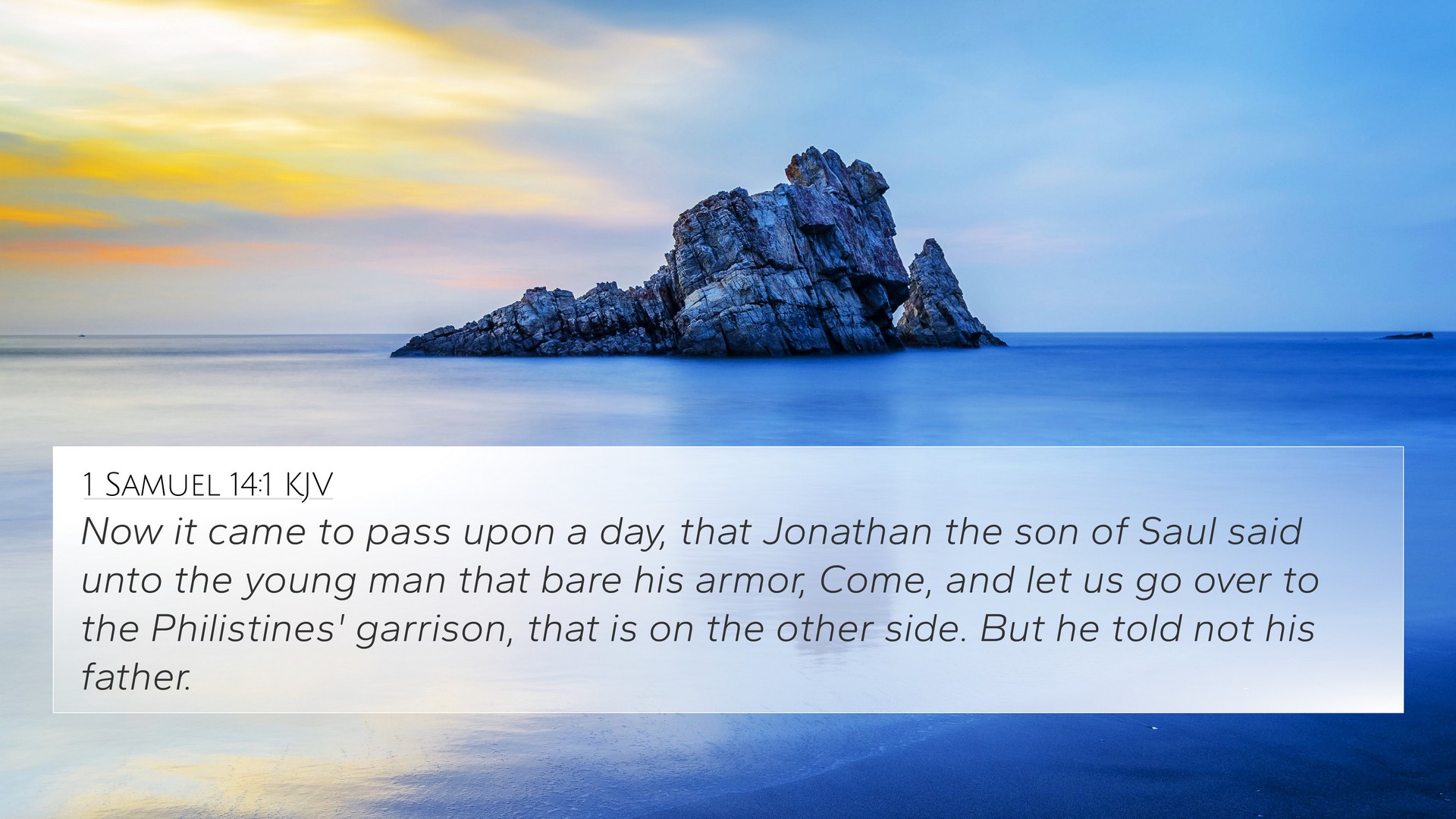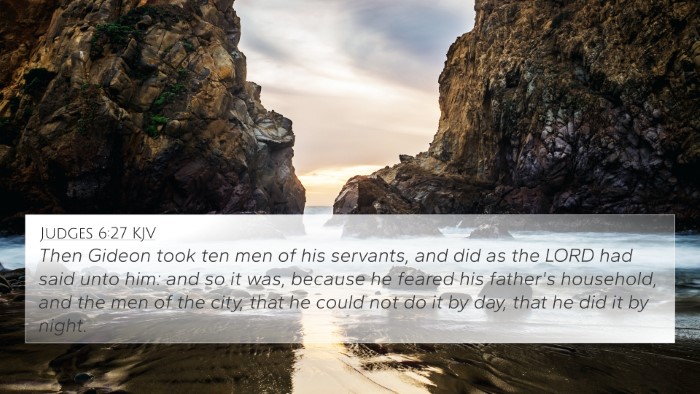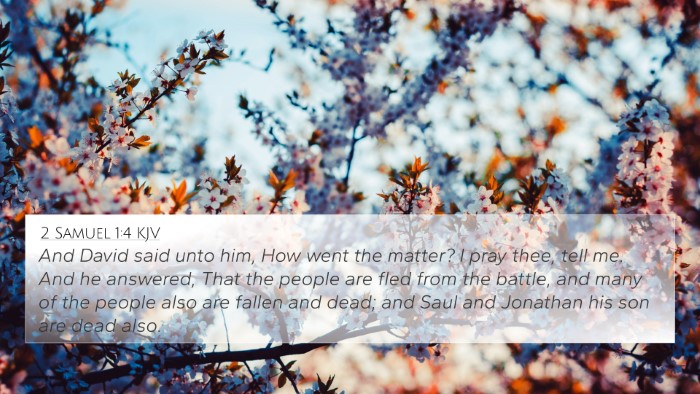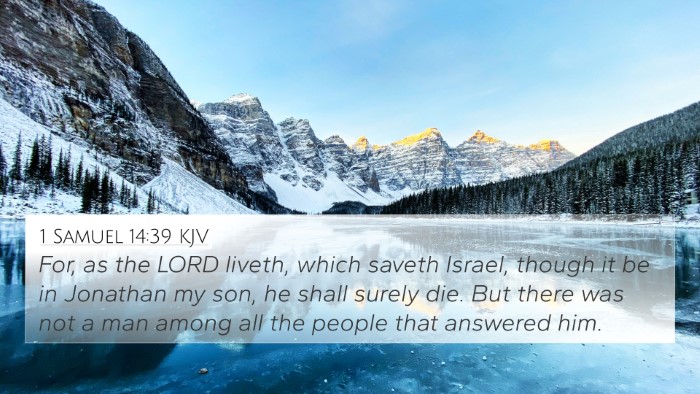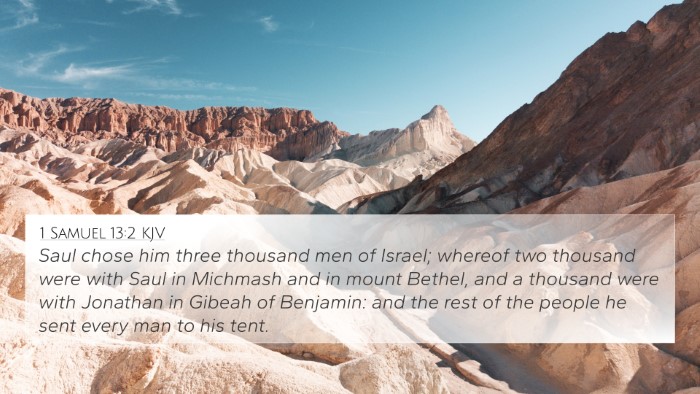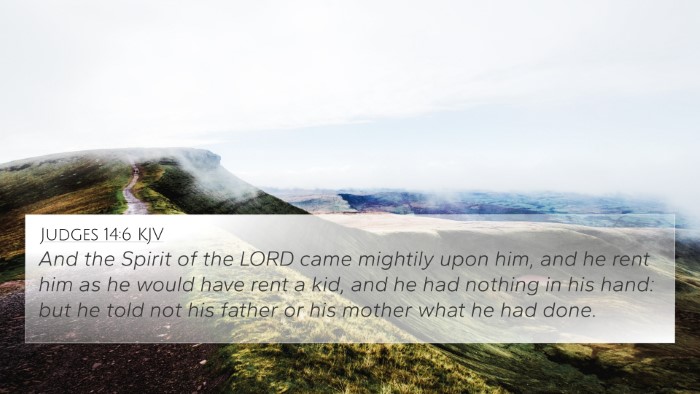Understanding 1 Samuel 14:1
1 Samuel 14:1 recounts a significant moment in Israel's history, showcasing the adventurous spirit of Jonathan, the son of Saul. This verse serves as a springboard for understanding the themes of faith, leadership, and divine providence in the Scriptures.
Verse Text
1 Samuel 14:1 (KJV): "Now it came to pass upon a day, that Jonathan the son of Saul said unto the young man that bare his armor, Come, and let us go over to the Philistines' garrison, that is on the other side. But he told not his father."
Contextual Background
This passage occurs during a time of conflict between Israel and the Philistines, highlighting the tension and challenges faced by Saul's leadership. Here, Jonathan's initiative reflects not just military strategy but also deep faith and courage.
Key Themes and Insights
- Courage and Initiative: Jonathan's decision to confront the Philistines illustrates the value of courage in the face of adversity. Matthew Henry notes that true courage is motivated by faith and trust in God's ability to deliver.
- Faith in Action: According to Adam Clarke, Jonathan believed in God's power to save, irrespective of the odds. His actions demonstrate a faith that inspires others and reminds believers of taking bold steps when led by God.
- Leadership and Authority: Jonathan's choice to not inform his father, King Saul, shows a complexity in leadership, as noted by Albert Barnes. It raises questions about authority and wisdom in leadership decisions.
- Divine Providence: The narrative sets the stage for God's intervention in Israel's battles, emphasizing that seemingly small acts of faith can lead to significant outcomes.
Cross-References
This verse connects deeply with various other biblical passages, enhancing the thematic understanding of courage, faith, and God's providential care:
- 1 Samuel 13:19-22: The predicament of Israel's weapons represents the dire circumstances Jonathan faced.
- Judges 7:7: God uses a few to save many, paralleling Jonathan's small group against a larger Philistine force.
- Proverbs 21:31: "The horse is prepared against the day of battle: but safety is of the LORD," emphasizing reliance on God in conflict.
- Hebrews 11:32-34: Jonathan's faith aligns with the hall of faith, listing those who acted through faith to conquer kingdoms.
- Philippians 4:13: "I can do all things through Christ which strengtheneth me," resonating with Jonathan's faith that empowered his actions.
- 2 Corinthians 5:7: "For we walk by faith, not by sight," illustrating Jonathan's spiritual approach to the challenge.
- 1 Samuel 14:6: This is a continuation of the narrative, where Jonathan expresses his faith and strategy in the face of the enemy.
- Numbers 14:40-45: The theme of taking bold steps against overwhelming odds, reflecting God's disappointment in cowardice.
- 1 John 5:4: "For whatsoever is born of God overcometh the world," connects the idea of overcoming challenges through faith.
- Matthew 17:20: "If ye have faith as a grain of mustard seed..." reinforces how faith can lead to victories regardless of size or position.
Conclusion
In conclusion, 1 Samuel 14:1 is not just a historical account but a profound lesson on faith, courage, and divine involvement in human affairs. By cross-referencing with other scriptures, we see a rich tapestry of biblical wisdom that encourages believers to act in faith, even in daunting circumstances.
Further Study Suggestions
- Utilize a Bible cross-reference guide to explore more connections related to courage and faith.
- Engage in a cross-reference Bible study by analyzing similar situations across the Old and New Testaments.
- Conduct a comparative study of Pauline epistles against Old Testament narratives for deeper understanding of themes.
- Focus on cross-referencing Psalms with New Testament teachings to explore the continuity of faith themes.
